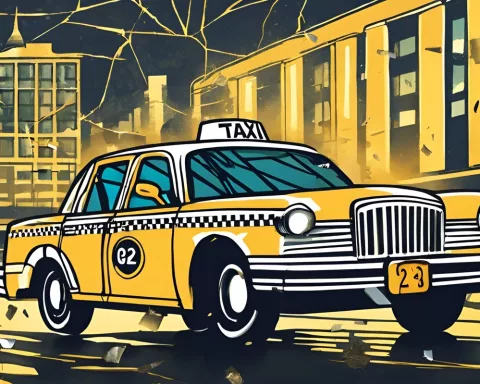Following a recent conflict between taxi drivers and law enforcement officials in Cape Town’s Central Business District (CBD), the South African National Taxi Council (SANTACO) has announced that they are recalling all taxis in the Western Cape province, ceasing operations indefinitely.
SANTACO Takes Drastic Measures
SANTACO’s decision came after a community meeting where the national and regional leadership of SANTACO gathered to discuss the situation. The conflict initially stemmed from the impounding of vehicles by Cape Town traffic officers, which provoked violent confrontations between drivers and law enforcement.
Commuters Face Disruptions
SANTACO’s official Twitter account announced the decision to recall all Western Cape taxis, emphasizing that “enough is enough.” As a result, commuters can expect delays and disruptions in their transportation routines, forcing them to plan accordingly.
Tensions Escalate
The clashes between taxi drivers and law enforcement occurred on Tuesday during the evening rush hour, as drivers blocked the streets in protest. In an attempt to disperse the crowd, police and metro police deployed stun grenades, further escalating the situation when officers smashed the window of a taxi to extract protesters.
Adding fuel to the fire, a suspect was shot in the leg by traffic officers after an alleged attack by a taxi driver and passenger during a traffic stop. SANTACO provincial chair Mandla Hermanus spoke out against the traffic officers’ impounding taxis, stating that vehicles are being seized even when the offense is committed by the driver, such as when drivers or commuters are found not wearing seatbelts.
Government to Address Impasse
Provincial mobility minister Ricardo Mackenzie has scheduled a joint briefing with police oversight, community MEC Reagen Allen, city officials, and police management to address the impasse. Commuters who rely on MyCiTi services and the minibus-taxi industry for transportation have been advised to anticipate delays and disruptions in the coming days.
Collaborating for a Solution
The taxi industry’s standoff with the City of Cape Town highlights the ongoing challenges faced by both commuters and taxi drivers in the region. As SANTACO continues to fight for their rights, it is essential that the local government and law enforcement agencies work together to find a solution that is amicable for all parties involved.
With the taxi industry being a crucial aspect of transportation in South Africa, the potential for continued disruptions and delays is a significant concern. The situation in Cape Town serves as a reminder that public transportation, especially in urban areas, requires continuous collaboration between stakeholders to maintain efficiency and safety.
Considering the Commuters
As the situation unfolds, it is crucial that all parties involved, from SANTACO to the local government and law enforcement, keep the best interests of the commuting public in mind. While the current situation may be tense, it is essential to remember that at the heart of the matter are the thousands of people who rely on the taxi industry to get to work, school, and other commitments each day. Ultimately, finding a solution that benefits everyone is the key to moving forward and ensuring that Cape Town’s transportation system remains functional and accessible.












